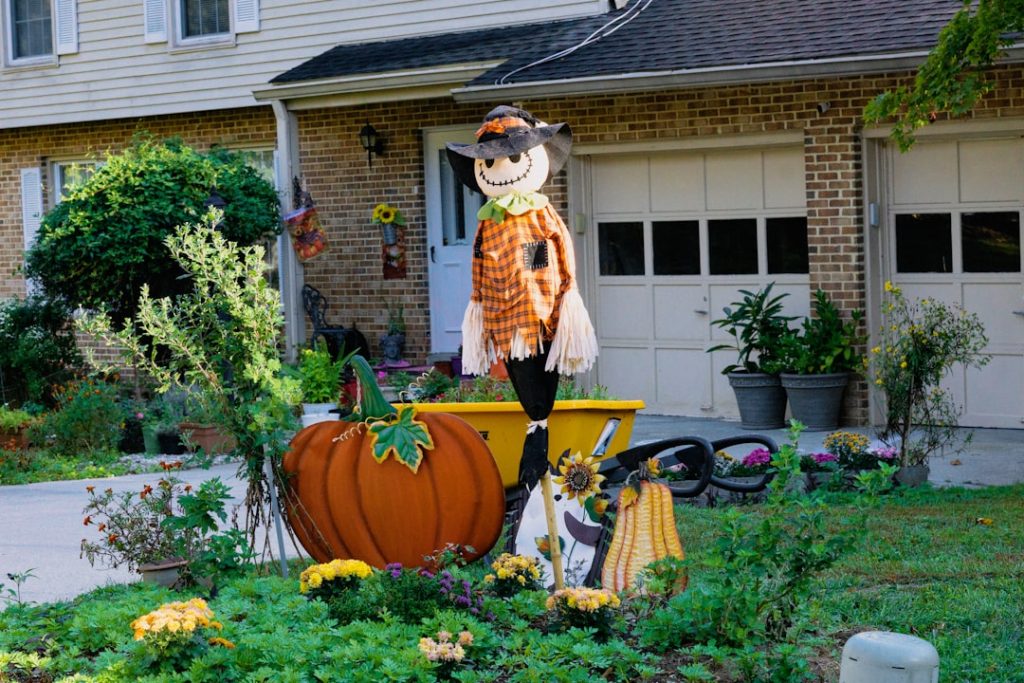Ravens are highly intelligent and opportunistic birds that can pose a significant threat to chickens. These skilled hunters and scavengers have been observed preying on small animals, including poultry. Ravens use their sharp beaks and strong talons to kill and consume chickens, making them a serious concern for flock owners.
Known for their boldness and persistence, ravens often return to locations where they have found food. Once they identify chickens as a potential food source, they are likely to continue targeting them. Ravens also demonstrate the ability to work in groups, potentially coordinating their efforts to distract or intimidate chickens before attacking.
These adaptable birds thrive in various environments, including urban and suburban areas, meaning chickens may be at risk of raven predation regardless of location. The threat extends beyond physical harm, as the presence of ravens can cause stress and anxiety among chickens, potentially impacting their health and egg production. Understanding the dangers posed by ravens is crucial for chicken owners to implement effective protective measures and ensure the safety and well-being of their flocks.
Table of Contents
- 0.1 Choosing the Right Location
- 0.2 Designing and Constructing a Secure Coop
- 0.3 Securing the Coop and Adding Deterrents
- 0.4 Attracting Natural Predators
- 0.5 Creating a Balanced Ecosystem
- 0.6 Responsible and Ethical Practices
- 1 FAQs
- 1.1 What are some effective methods for keeping ravens away from chickens?
- 1.2 Are there any natural deterrents that can be used to keep ravens away from chickens?
- 1.3 What should I do if I spot a raven near my chicken coop?
- 1.4 Are there any legal methods for controlling ravens near my chickens?
- 1.5 What are the potential risks of having ravens near my chickens?
Choosing the Right Location
When selecting a location for your coop, avoid areas where ravens are known to frequent, such as open fields or wooded areas. This will help reduce the likelihood of ravens discovering and targeting your chickens.
Designing and Constructing a Secure Coop
Use sturdy materials to build your coop, and secure it with strong wire mesh that is small enough to prevent ravens from reaching through and grabbing your chickens. Consider adding a roof or cover to the coop to prevent aerial attacks from ravens.
Securing the Coop and Adding Deterrents
Secure the doors and windows of the coop with latches and locks to prevent ravens from gaining access. Regularly inspect the coop for any signs of wear or damage, and make repairs as needed to ensure that it remains secure. Additionally, consider adding deterrents such as scarecrows or reflective objects to discourage ravens from approaching the coop. These visual deterrents can help make your coop less appealing to ravens and reduce the likelihood of an attack.
In addition to building a secure coop, using scare tactics can be an effective way to keep ravens at bay and protect your chickens. Visual deterrents such as scarecrows, reflective tape, or shiny objects can help deter ravens from approaching your coop. These visual deterrents work by creating an unfamiliar and potentially threatening environment for the ravens, making them less likely to target your chickens.
Place these deterrents strategically around the coop to create a perimeter that discourages ravens from getting too close. Auditory deterrents can also be effective in keeping ravens away from your chickens. Loud noises such as clapping, banging pots and pans, or using a whistle can startle and scare off ravens when they approach your coop.
Consider setting up motion-activated devices that emit loud noises when they detect movement near the coop. This can help deter ravens from approaching and reduce the risk of an attack on your chickens. It is important to regularly rotate and change the placement of visual and auditory deterrents to prevent ravens from becoming accustomed to them.
By using a combination of visual and auditory scare tactics, you can create an environment that is less appealing to ravens and reduce the likelihood of raven predation on your chickens.
Securing the outdoor space around your coop is just as important as building a secure coop when it comes to protecting your chickens from raven predation. Start by installing a sturdy fence around the perimeter of the yard to prevent ravens from gaining access to your chickens. Make sure the fence is tall enough to prevent ravens from flying over it and that it extends into the ground to prevent digging or burrowing underneath.
Regularly inspect the fence for any signs of wear or damage, and make repairs as needed to ensure that it remains secure. Consider adding an apron or skirt around the base of the fence to further deter digging or burrowing by predators. Additionally, consider adding motion-activated lights or sprinkler systems around the yard to startle and deter ravens when they approach.
It is also important to remove any potential attractants from the yard that may draw in ravens, such as uncovered garbage or compost piles. Keep the yard clean and free of food scraps or other items that may attract scavenging birds. By predator-proofing the outdoor space around your coop, you can create a safe and secure environment for your chickens to roam without the threat of raven predation.
One effective way to keep ravens from targeting your chickens as a food source is by providing alternative food sources for them. Consider setting up bird feeders or bird baths in a different area of your property to attract ravens away from your coop. By providing an alternative food source, you can help reduce the likelihood of ravens targeting your chickens for food.
Another option is to plant fruit-bearing trees or shrubs that can provide natural food sources for ravens. By creating a habitat that supports their natural diet, you can help discourage ravens from targeting your chickens as a food source. Additionally, consider setting up feeding stations with bird seed or suet in a different area of your property to attract ravens away from your coop.
It is important to regularly monitor and maintain these alternative food sources to ensure that they remain attractive to ravens. By providing alternative food sources, you can help reduce the likelihood of raven predation on your chickens and create a more harmonious coexistence with these intelligent birds.
Attracting Natural Predators
One effective strategy for keeping ravens away from your chickens is to work with nature and use natural predators as a deterrent. Consider attracting birds of prey such as hawks or owls to your property by installing perches or nesting boxes. These natural predators can help keep ravens at bay by creating an environment where they feel threatened and less likely to target your chickens.
Creating a Balanced Ecosystem
In addition to attracting natural predators, consider introducing predator-friendly plants or habitat features that can support other animals that may prey on ravens. By creating a diverse and balanced ecosystem on your property, you can help maintain natural checks and balances that discourage raven predation on your chickens.
Responsible and Ethical Practices
It is important to note that while using natural predators can be an effective deterrent for keeping ravens away from your chickens, it is essential to do so in a responsible and ethical manner. Work with local wildlife experts or conservation organizations to ensure that you are promoting a healthy and sustainable ecosystem on your property.
Finally, staying vigilant and monitoring the situation is crucial for protecting your chickens from raven predation. Regularly inspect the coop and outdoor space for any signs of raven activity or attempted attacks. Look for any areas where ravens may be gaining access or where they are congregating near the coop.
If you notice any signs of raven activity, such as feathers or droppings near the coop, it may be necessary to adjust your tactics and reinforce security measures. Consider adding additional visual or auditory deterrents, or making repairs and improvements to the coop or outdoor space as needed. It is also important to stay informed about raven behavior and habits so that you can adapt your tactics accordingly.
Keep up with local wildlife news and research, and seek advice from experts or experienced chicken owners who have dealt with raven predation. By staying vigilant and adapting your tactics as needed, you can effectively protect your chickens from raven predation and create a safe and secure environment for them to thrive. Remember that protecting your flock requires ongoing effort and attention, but by taking proactive measures and staying informed, you can successfully keep ravens at bay and ensure the safety of your chickens.
If you’re looking for tips on how to keep ravens away from your chickens, you may also be interested in learning about what to feed ducks. Check out this article for helpful information on keeping ducks and providing them with the right nutrition.
FAQs
What are some effective methods for keeping ravens away from chickens?
Some effective methods for keeping ravens away from chickens include using scare tactics such as visual deterrents like shiny objects or predator decoys, using noise deterrents such as wind chimes or distress calls, and securing chicken coops with strong fencing and covers.
Are there any natural deterrents that can be used to keep ravens away from chickens?
Yes, there are natural deterrents that can be used to keep ravens away from chickens. Some examples include planting thorny bushes or trees around the chicken coop, using strong-smelling herbs or spices, and encouraging the presence of natural predators such as hawks or owls.
What should I do if I spot a raven near my chicken coop?
If you spot a raven near your chicken coop, it’s important to take immediate action to deter them. You can use scare tactics such as making loud noises or waving your arms to frighten them away. It’s also important to assess the security of your coop and make any necessary adjustments to prevent the ravens from gaining access to your chickens.
Are there any legal methods for controlling ravens near my chickens?
In some areas, there may be legal methods for controlling ravens near your chickens. It’s important to check with local wildlife authorities to understand the regulations and guidelines for dealing with ravens. In some cases, obtaining a permit may be necessary for certain control methods.
What are the potential risks of having ravens near my chickens?
Having ravens near your chickens can pose several risks, including predation of chicks and eggs, stress and disturbance to the chickens, and potential spread of diseases. It’s important to take proactive measures to keep ravens away from your chickens to minimize these risks.
Meet Walter, the feathered-friend fanatic of Florida! Nestled in the sunshine state, Walter struts through life with his feathered companions, clucking his way to happiness. With a coop that’s fancier than a five-star hotel, he’s the Don Juan of the chicken world. When he’s not teaching his hens to do the cha-cha, you’ll find him in a heated debate with his prized rooster, Sir Clucks-a-Lot. Walter’s poultry passion is no yolk; he’s the sunny-side-up guy you never knew you needed in your flock of friends!







